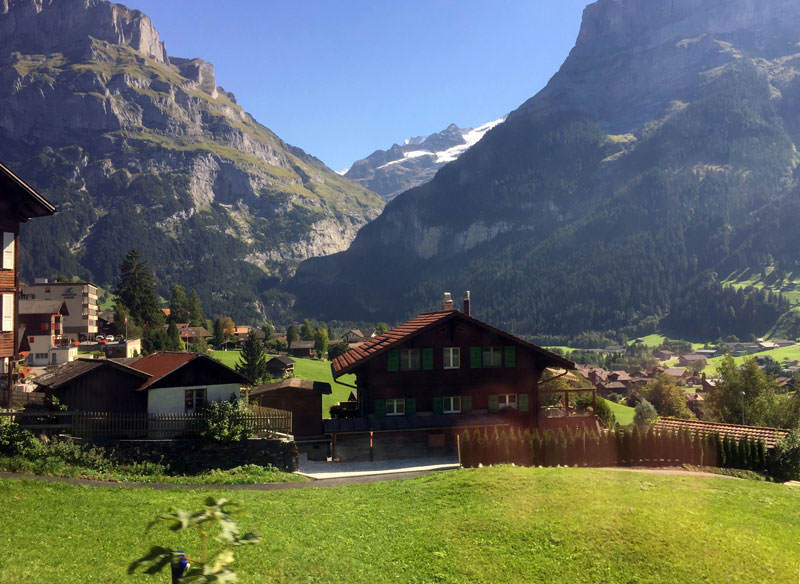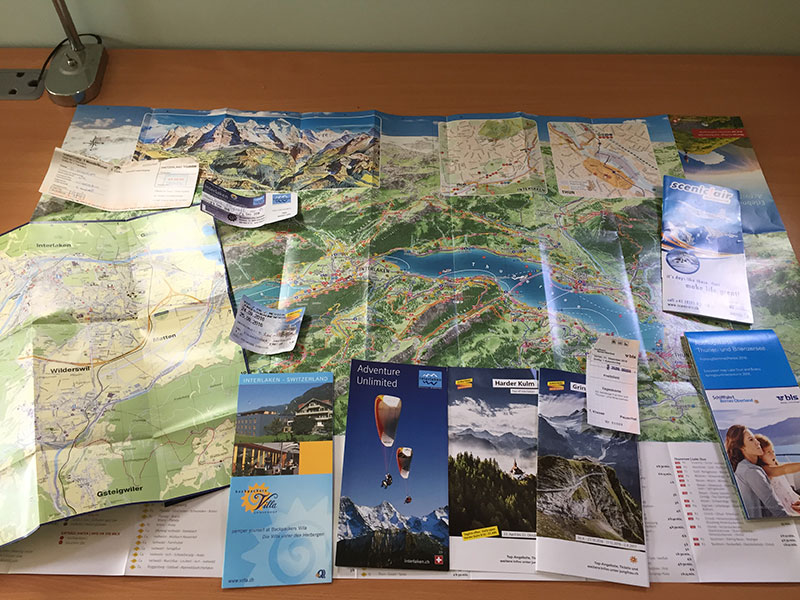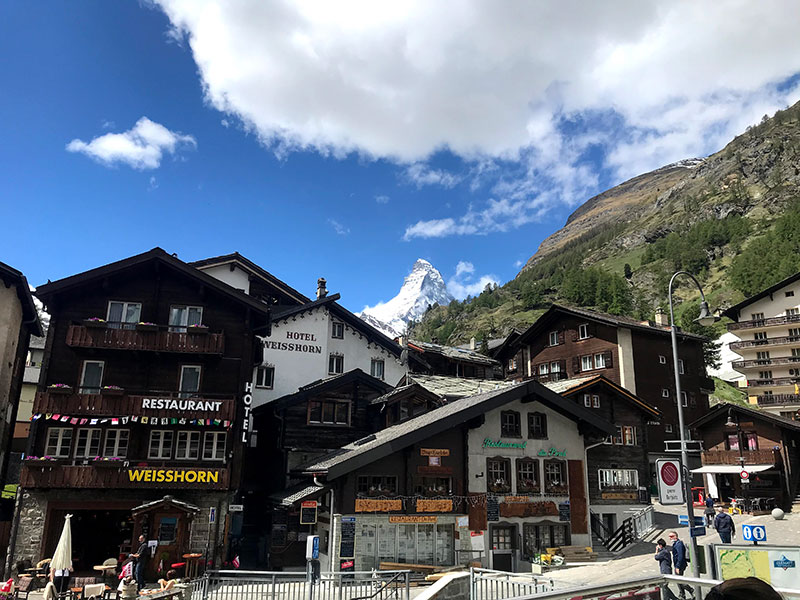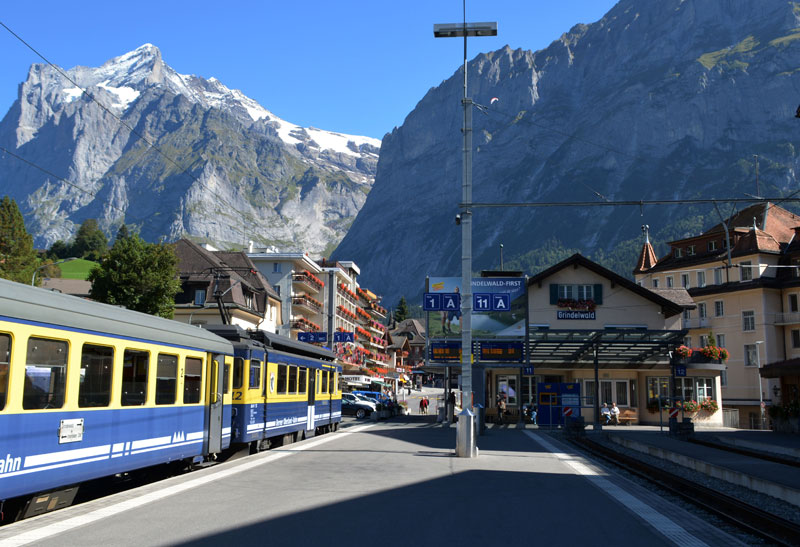As the travel industry regains momentum after a quiet two years during the pandemic, there is much more discussion about responsible travel. So, wat is responsible trave? It means being more considerate when travelling, towards the environment and the communities that welcome you. Most importantly, perhaps, is that responsible travel involves changing attitudes towards tourism. It’s in realising the purpose of the places we choose to visit. Rather than being a holiday destination, these are living, working communities that provides a home, an economy and a secure environment for people to live. With that in mind, we are more inclined to treat places, and the people we meet along the way, with a deeper respect. After all, travel should provide a two-way interaction. Firstly to the traveller, who should be welcomed to enjoy cultures and experiences – but also to the communities welcoming everyone. They, too, should be valued – and know their hospitality is valued and vital.
 Approaching Grindelwald by train
Approaching Grindelwald by train
Here are 10 ways in which responsible travel can be introduced into every trip….
Choose a place that already considers environmental and cultural sustainability
With the climate emergency at the forefront of people’s minds, many countries and cities around the world are taking the need to care for local communities seriously. This means while tourist infrastructure is important, more effort is being out in to looking after the wild environments around the region, as well as the local people who live in those places. Costa Rica, for example, has declared 25% of its land as a conservation zone to preserve the country’s vast biodiversity, while the city of Copenhagen is working hard to make renewable energy its main source of energy across the hospitality sector. In Bhutan, a set $250 nightly fee is payable by all tourists, which includes a 37% tax that goes towards improving infrastructure, healthcare and education. By choosing such places as a holiday destination, you are showing those governments around the world that sustainability policies are important to keep tourists coming.
Car free Zermatt, Switzerland Photo © Jessie Leong
Consider your mode of transport
If you’re planning a trip, considering your carbon impact is a must. Trains, in comparison to airplanes, emit much less carbon emissions per passenger. For example, a journey from London to Paris by Eurostar emits up to 90% less carbon than an equivalent short haul plane journey. If you’re travelling domestically or doing a cross-continent trip, assign a little more time to your journey and travel overland knowing you’re doing something great for the planet. If you have no option but to fly, consider your route carefully and fly in one sitting if possible. Planes emit more carbon during take offs and landings, so fewer stops are better. Finally, if you take multiple holidays a year, consider only flying on one of those and opting to embrace overland travel on the other occasions. As estimates suggest that only 6% of the world’s population travel by airplane, most flight emissions are due to frequent travellers. By reducing our need to fly, we can make a huge positive impact.
Plan your trip out of peak times
Sadly, it’s quite common for tourist hotspots to display signs of overtourism – where local environments and communities show signs of negative impact due to tourist numbers. This can take shape in many forms, including local housing to be pushed out of central locations to make room hotels and resorts, inflated transport fares and food and hospitality prices sky-rocketing. If it is possible to travel away from the busy holiday seasons, you can help to level out the pressure on local infrastructure and provide much-valued income for locals in off-peak periods. Better still, avoid places already suffering from overtourism – such as cities like Barcelona or Venice, that often have to deal with thousands of daily cruise ship passengers on top of their usual high tourist numbers.
Off season travel helps avoid the crowds and queues, even on the most popular classic routes
Travel with a sustainability-focused operator
If you’re booking your holiday through an agency or operator, take time to read about their responsible travel policies. Any operator worth their salt these days will have adopted a more conscious approach to travel and will proudly display their ethics on their website. Supporting these businesses is a great way to show industry powerhouses that sustainability matters to travellers, and many want to choose a more responsible way of travelling if they can. This is especially important when visiting remote areas such as Antarctica or the Kimberley in Western Australia or booking wildlife experiences – such as trekking with mountain gorillas in Rwanda or whale watching on the west coast of the US. Ethical operators tend to hire experienced tour guides to lead their tours – allowing them to prioritise the preservation of environment and culture, or the safety of wildlife, while also providing interesting insights for the visitor.
Opt for independent accommodation over a chain hotels or resorts
B&Bs, guesthouses and homestays are typically run by locals and provide a more personal service than big hotels and resorts. Most importantly, however, they operate on a more sustainable and responsible level by catering to a select number of guests. Breakfasts, for example, are usually made to order – while in resorts, a large amount of food can go to waste each day through breakfast buffets alone. Staying in community-run accommodation offers many benefits. It allows you to get to know local culture and customs through your host and learn about where to visit away from the crowds. If possible, book your accommodation outside of the main city or tourism hub as you’ll be contributing to the economy in less-visited communities. It’s a win-win situation.
Book a local tour guide
There’s no better way to learn about the history, culture and nuances about a place than by speaking to a local. That’s why when searching for tour guides, it’s always best to source someone locally. Walking and cycling tours are common in many cities and big towns around the world – and they are often run by local people who know the region well. Not only will you absorb information that only a local will know, but you will also be able to learn about the impact of past events and current political and societal situations. It’s a great way to truly get to know your chosen place.
Shop at local markets and businesses-run businesses
A simple and easy way to give back to the community you’re visiting is by injecting your tourist expenditure directly into the local economy. Whether your souvenir shopping or going out for a meal, choose somewhere that is community-run. In fact, you’re more likely to enjoy your authentic experience far more when you know your individual custom is sincerely appreciated. By swapping government-run establishments and big-name chains for small businesses, you’ll be putting money back into the society that is hosting you.
Do your research
A major part of responsible travel is to respect any cultural differences you may come across along the way. To do this successfully, spend time researching your chosen place before travelling. Take time to understand significant cultural beliefs, events and traditions that you may need to be aware of. If there is a festival or occasion taking place while you visit, talk to the people at your accommodation about it – and even join in if you want to. It’s a great way to scratch beneath the surface of local culture and embrace the new experiences coming your way.
 Researching your trip in advance has numerous benefits
Researching your trip in advance has numerous benefits
Dress with respect
Keep in mind that different cultures are comfortable with different types of dress. Some particularly religious regions – for example, parts of the Middle East, Vatican City, India and Indonesia – require shoulders and knees to be covered when visiting religious buildings such as churches and mosques. While some dress codes might be different to what you’re used to at home, this is a great opportunity to embrace customs and show respect while you travel. The communities you visit will appreciate the care you have taken.
Practise mindful photography
While photographs are an easy way of keeping a diary of your trip, there are occasions when you should reconsider pulling out your camera. For instance, some government and religious establishments ban photography altogether and can fine people for ignoring the rules. Generally, the key directive when photographing people is to always ask permission. You can ask whether you can take someone’s photograph through a simple gesture to your camera and a smile, or better still by learning how to ask the question using a phrase book or using the Google Translate app. And while kids can make super-cute portraits, put yourself in the position of the child’s parent – would you want your little one snapped by a stranger? The golden rule is that if you feel uncomfortable while attempting to take a picture, it is likely your subject feels the same – so, be aware and respectful in every situation.



